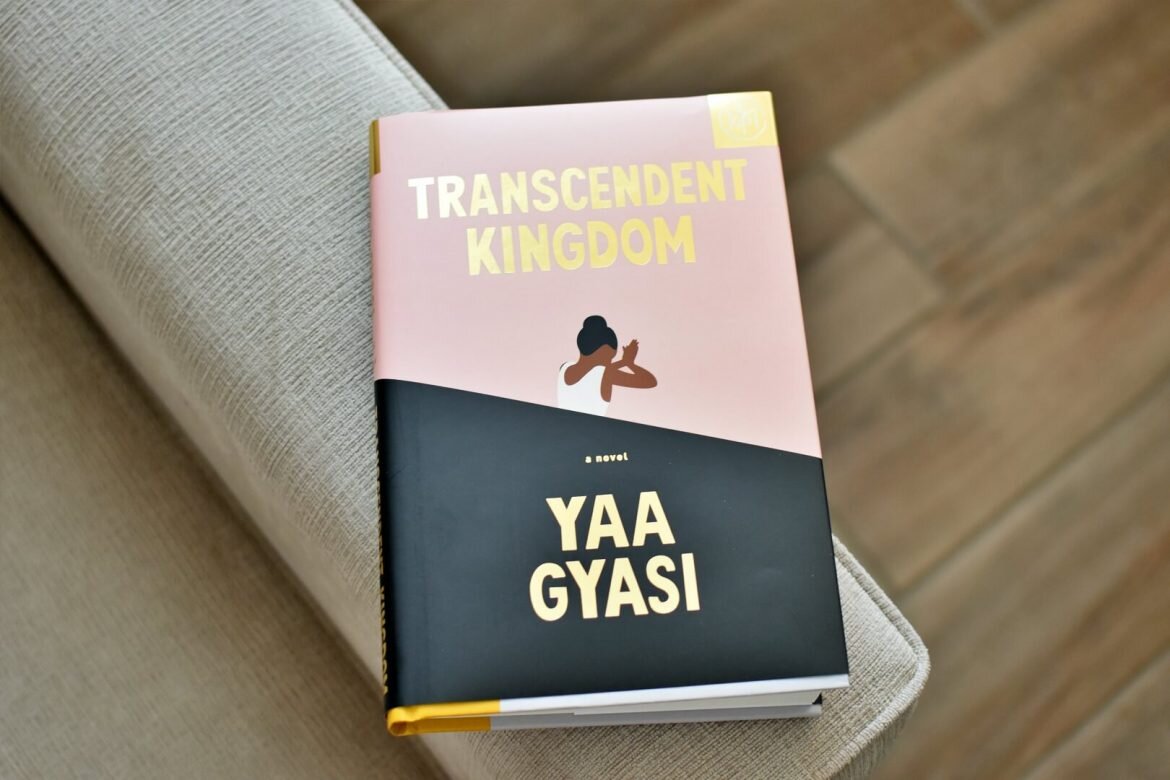Transcendent Kingdom: A Memorable Exploration of Science and Religion
Yaa Gyasi, best-selling author of Homegoing, released her second novel Transcendent Kingdom this summer. Gyasi, born in Ghana and raised in Alabama, writes about a young PhD candidate named Gifty from a Ghanian family growing up in Alabama, as well. Transcendent Kingdom is an exploration of so many rich themes: the stigmas surrounding mental illness, the racism clouding Gifty’s hometown church, and ultimately, the attempt to reconcile her relationships with science and religion. Transcendent Kingdom is a deeply thoughtful, challenging 2020 read that avoids simple resolutions.
Gifty is studying neuroscience at Stanford, and her thesis aims to uncover restraint and reward-seeking behaviors in mice. After her brother Nana died of a heroin overdose in high school and her mother developed depression, Gifty has always sought to understand scientific explanations for mental illnesses. The book is filled with neurological theories for why humans behave the way they do. Gifty desperately wants to learn how to prevent these tragedies from happening to others, but at her core she craves closure for Nana’s death. She wants answers: “Why didn't Nana stop? Why didn't he get better for us? For me?”
A devout Christian born and raised in a deeply religious household, Gifty swears off religion after her brother dies and members of her church distance themselves from her family in their greatest moment of need. She can’t understand how someone like Ryan, a racist boy who belittles her and deals drugs to her brother, can preach the word of God. “If the Kingdom of Heaven allowed someone like him in, how could there also be a place for me?” She experiences years of subtle and not-so-subtle racism in her community, at one point overhearing two women say, “Their kind does seem to have a taste for drugs” when Nana develops his addiction. As a result, Gifty turns away from the church and immerses herself in the scientific field to find cosmic answers and solace.
But what makes Transcendent Kingdom so powerful and rare is that it resists the urge to simplify the conflict between science and religion. Gifty’s relationship with her faith evolves with every passing chapter, and she refuses to cast her faith off entirely even after it fails her. Instead, she reexamines her faith from different angles and begins to forge a tentative new relationship with God. She says, “This idea that one must necessarily choose between science and religion is false. I used to see the world through God's lens, and when that lens clouded, I turned to science. Both became, for me, valuable ways of seeing, but ultimately both have failed to fully satisfy in their aim: to make clear, to make meaning.” I have never encountered another novel that has such a candid, complex, and realistic conversation about religion.
Transcendent Kingdom is ultimately a celebration of the miracle of human experience. There are certain things in life for which Gifty can find no explanation in science or religion. How is it possible for Gifty’s mother to survive the unimaginable loss of her husband and son? How is her small family unit able to weather the storms of mental illness, racism, and separation? Gyasi writes, “To be alive in the world, every day, as we are given more and more and more, as the nature of ‘what we can handle’ changes and our methods for how we handle it change, too, that's something of a miracle.” Transcendent Kingdom is a poignant read, especially in 2020, about how to do the impossible in the face of insurmountable hardship: keep going.











